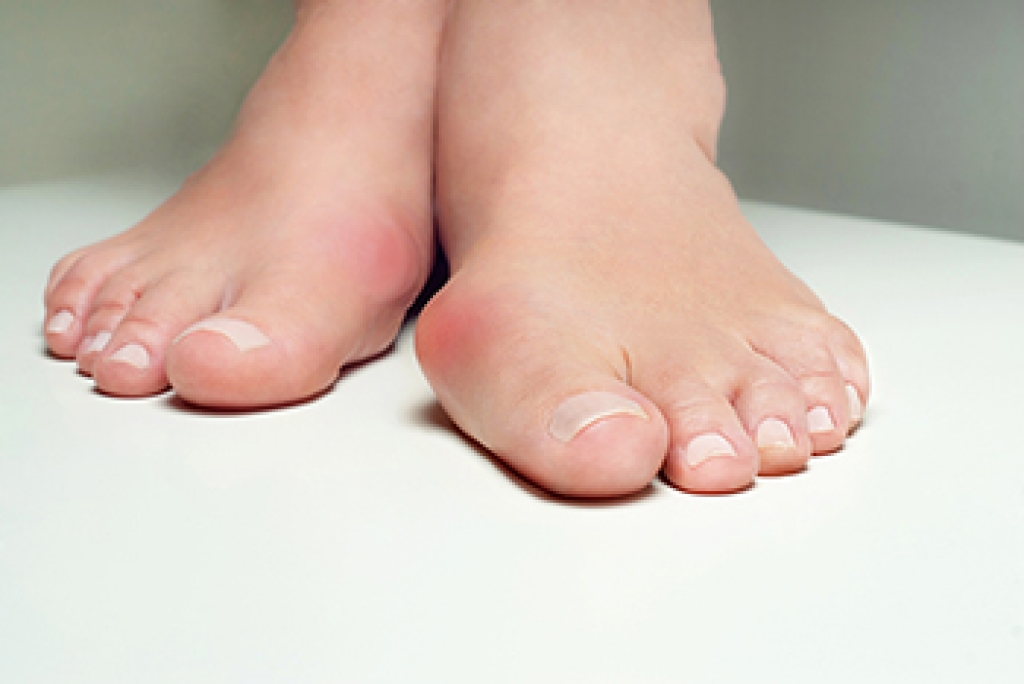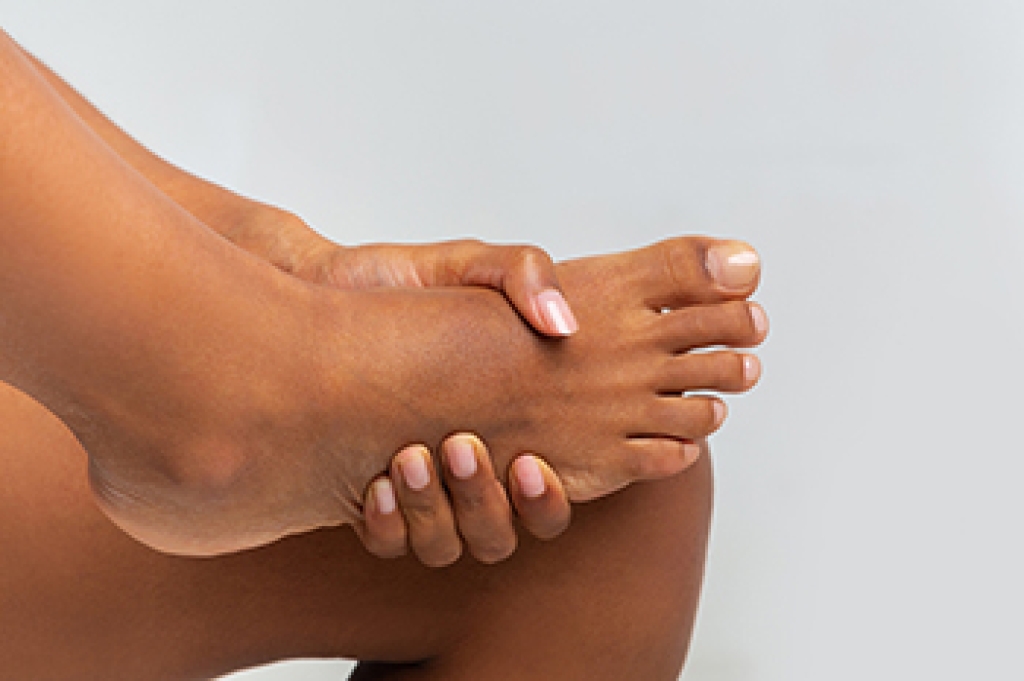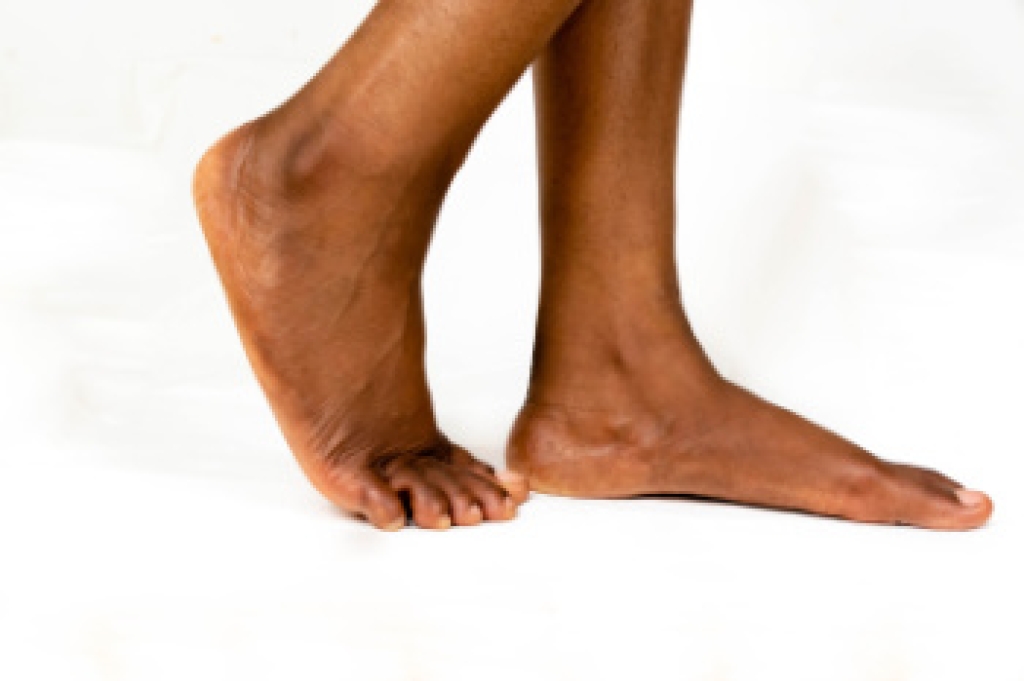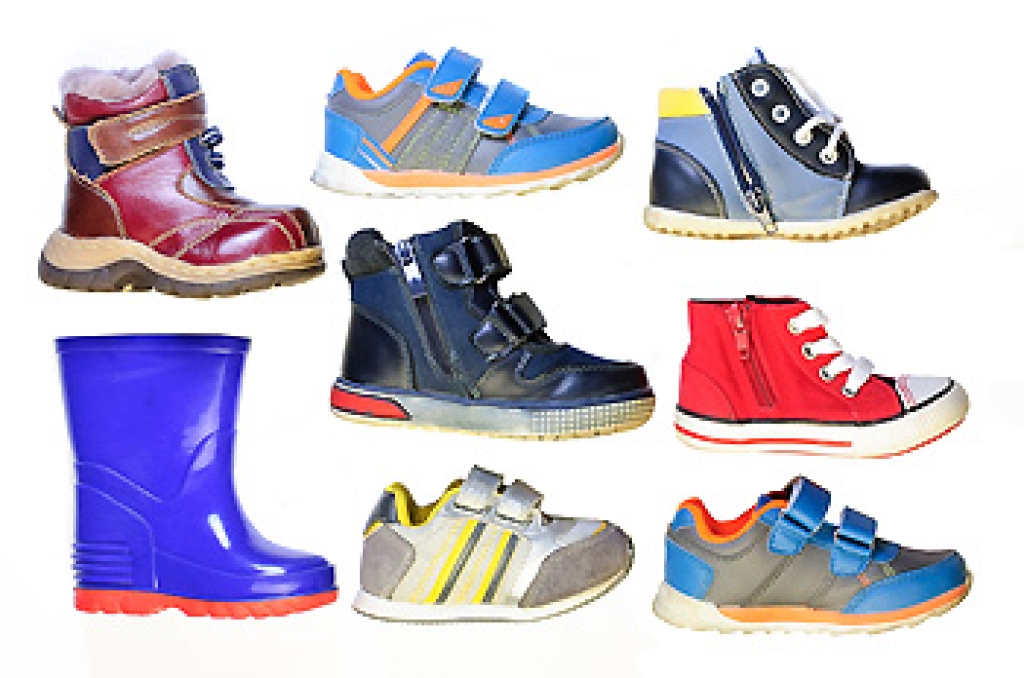
A bunion develops when the big toe gradually shifts toward the smaller toes, causing a noticeable bump on the side of the foot and irritation around the big toe joint. This change, known medically as hallux valgus, often leads to soreness in the toes, redness around the joint, and areas of thickened skin under the ball of the foot. Some people experience numbness if nearby nerves become irritated, and stiffness in the big toe can make walking uncomfortable. Shoes that lack adequate support or have narrow designs often increase pressure on the joint. A podiatrist can evaluate the alignment of the toes, check joint movement, and recommend a treatment plan. Supportive footwear with a wide toe box, custom orthotics, and padding can ease pressure on the joint, while surgery corrects the underlying misalignment when pain is severe. If you have a painful bunion, it is suggested that you make an appointment with a podiatrist for a diagnosis and treatment.
If you are suffering from bunion pain, contact Kentston Cripe, DPM of Roseville Foot & Ankle. Our doctor can provide the care you need to keep you pain-free and on your feet.
What Is a Bunion?
Bunions are painful bony bumps that usually develop on the inside of the foot at the joint of the big toe. As the deformity increases over time, it may become painful to walk and wear shoes. Women are more likely to exacerbate existing bunions since they often wear tight, narrow shoes that shift their toes together. Bunion pain can be relieved by wearing wider shoes with enough room for the toes.
Causes
- Genetics – some people inherit feet that are more prone to bunion development
- Inflammatory Conditions - rheumatoid arthritis and polio may cause bunion development
Symptoms
- Redness and inflammation
- Pain and tenderness
- Callus or corns on the bump
- Restricted motion in the big toe
In order to diagnose your bunion, your podiatrist may ask about your medical history, symptoms, and general health. Your doctor might also order an x-ray to take a closer look at your feet. Nonsurgical treatment options include orthotics, padding, icing, changes in footwear, and medication. If nonsurgical treatments don’t alleviate your bunion pain, surgery may be necessary.
If you have any questions, please feel free to contact our office located in Roseville, CA . We offer the newest diagnostic and treatment technologies for all your foot care needs.




